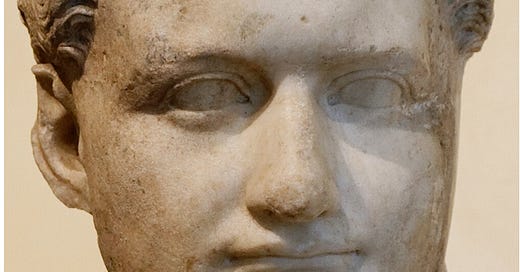To read previous newsletters in the History of Mankind, which is pretty long, you can click here. Make sure to become a paying subscriber because they are all pay-walled.
Domitian (r. 81-96) was in many senses a colder version of his father and elder brother. His clashes with the senate left a trail of executed opponents – still fewer than those killed by better-regarded Claudius – and inspired remembrances of emperors past among the many historians who lived through his reign; they also contributed to crafting the image of a paranoid tyrant whose authoritarianism went well beyond the majesty expected of a Roman leader.
A happily married man whose only son died in infancy but who still retained enough of a sense of humor to be more sanguine about his own balding than Julius Caesar had ever been1, Domitian fancied himself a new Augustus. As a father of the state, he understood he had the moral authority to clean up Rome from weakening influences and restore a virile state characterized by high morals and low corruption, filial devotion and social order.
Keep reading with a 7-day free trial
Subscribe to A History of Mankind to keep reading this post and get 7 days of free access to the full post archives.




